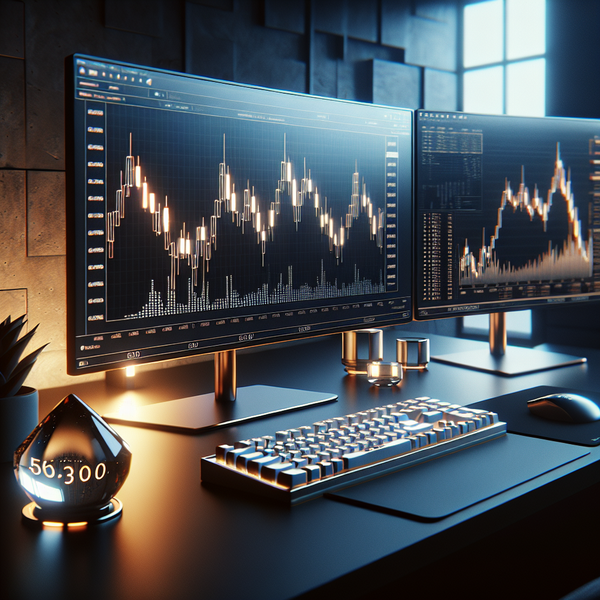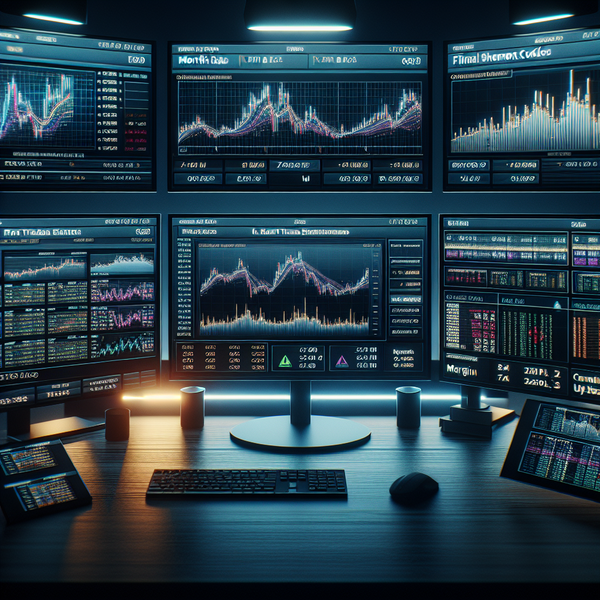Complete Guide to Day Trading Futures for Beginners
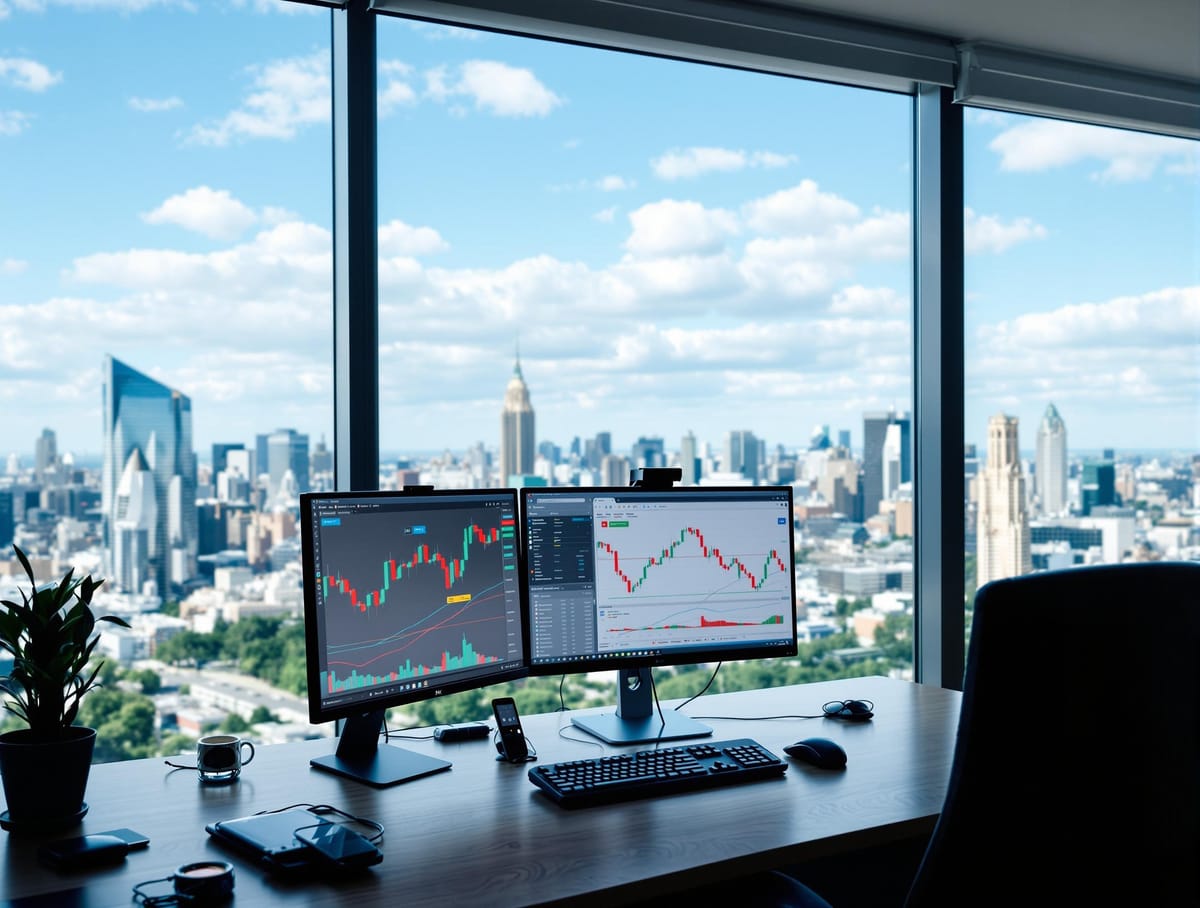
Day trading futures for beginners might seem intimidating, but with the right knowledge and smart strategies, anyone can learn how to succeed. This in-depth guide covers the core aspects of futures trading — from choosing the best futures to trade and finding a great platform, to mastering futures trading strategies and practicing with zero risk. Whether you’re just curious or ready to start, this post will help you get comfortable, build your confidence, and make informed decisions in the world of day trading futures.
What Is Day Trading Futures?
How Futures Contracts Work
Futures contracts are agreements to buy or sell a specific asset at a predetermined price on a set future date. These contracts allow traders to speculate on the price movements of commodities, indexes, or currencies without owning the underlying asset. When day trading futures, positions are opened and closed within the same day, so you never hold contracts overnight. Ever wondered why so many experienced traders gravitate toward futures? It’s largely because of the contract’s flexibility, transparency, and standardized nature—making them a foundation of modern financial markets.
Why Day Trading Futures Is So Popular
Day trading futures has exploded in popularity due to its accessibility, leverage, and round-the-clock market hours. For many, the thrill comes from the ability to capitalize on both up and down markets, allowing profits in almost any condition. Many brokers offer advanced futures trading courses and paper trade futures accounts, helping even beginners get started quickly. Plus, with micro futures and short futures contract options, traders can tailor risk to smaller account sizes. Do you feel drawn to the fast pace and quick rewards of day trading futures?
Best Futures to Trade for Beginners
Best Futures to Trade for Beginners Right Now
The best futures to trade for beginners include E-mini S&P 500, crude oil, gold, and micro futures on major indices. These contracts offer liquidity and tight spreads, making it easier to enter and exit trades without large price slippage. Micro contracts, in particular, have become extremely popular for new traders due to their lower margin requirements and reduced risk exposure. By focusing on popular contracts, beginners can benefit from active markets and ample learning resources. How would your trading journey change if you started with assets best suited for learning?
How to Pick the Right Futures Contracts for Your Style
Choosing the right futures contracts depends on your trading style, risk tolerance, and interests. For example, if you favor consistency and lower volatility, index futures like the E-mini S&P 500 might suit you best. Those seeking quick moves might lean toward crude oil or gold, while absolute beginners should consider trading micro futures to minimize risk. Look for contracts with high volume and clear patterns that match your personality and trading goals. What type of trader do you see yourself becoming in the futures market?
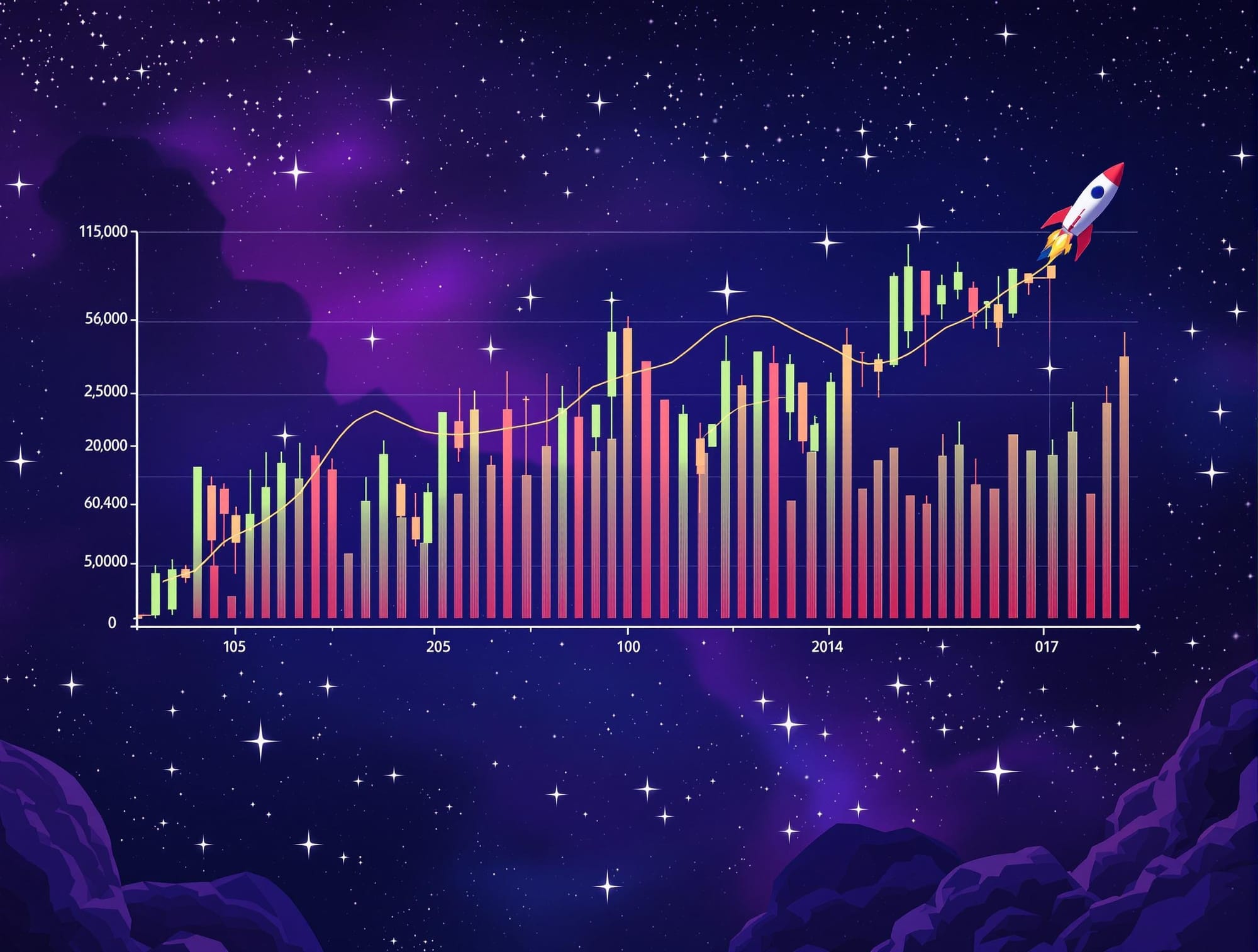
How to Start Day Trading Futures for Beginners
What You Need to Open a Futures Trading Account
To open a futures trading account, you’ll need identification, proof of address, and details about your financial experience. Brokers will often require some background information to assess your suitability and may ask about your knowledge level before letting you access advanced tools like leverage. Start by researching a best futures trading platform for beginners to find one with educational resources and quality customer support. Completing a futures trading course can also help you feel ready and informed. Are you prepared to meet the minimum requirements to begin your trading journey?
Smallest Account Size to Trade Futures
The smallest account size to trade futures varies by broker and the types of contracts you want to trade. Some brokers allow you to open an account with as little as $400–$1,000, especially if you plan to trade micro futures. However, having a buffer above the minimum helps manage risk and avoid margin calls. Always remember, trading with the smallest account size means controlling risk even more tightly and choosing the best futures to trade for beginners with low margin requirements. Is your starting capital enough to allow for mistakes and learning as you go?
Futures Trading Strategies That Actually Work
Simple Futures Day Trading Strategies to Try
For beginners, start with straightforward futures day trading strategies like breakout trading and trend following. Breakout trading focuses on entering positions when prices move above resistance or below support, while trend following rides market momentum after a clear trend is established. Using simple indicators like moving averages or the Relative Strength Index (RSI) can make these strategies easier to spot. Practicing these futures trading strategies on a paper account helps you avoid costly errors while learning. Which strategy would fit your personality best—momentum or patience?
Futures Day Trading Strategies for Different Markets
Different futures markets require unique approaches. Index futures typically respond well to opening range breakouts, while agricultural futures may be influenced by seasonal cycles. Crude oil and gold futures often offer quick intraday swings, ideal for scalping or swing trading tactics. The key is adapting your strategy to the volatility, liquidity, and fundamentals of each contract. Have you considered tailoring your methods to the strengths of each market you trade?
Paper Trade Futures Before You Go Live
Why Practicing With a Paper Account Is Crucial
Practicing with a paper account, or simulated trading, lets you develop skills and test futures trading strategies without risking real money. This approach helps you learn order entry, risk management, and futures market analysis in a stress-free environment. Paper trade futures before committing capital so you can gain confidence and correct mistakes. Many top brokers offer realistic paper trading platforms for both standard and micro futures contracts. How much would your confidence grow with risk-free practice?
How to Paper Trade Futures Like a Pro
To paper trade futures like a pro, treat your demo account as if it were real money. Log every trade, review your results, and make adjustments based on your strengths and weaknesses. Use the best futures trading platform for beginners for accurate fills, real-time prices, and the ability to test a variety of futures trading strategies across different markets. Set a schedule and stick to your trading plan, analyzing outcomes to improve consistency. Are you ready to build strong habits that will translate in real trading conditions?
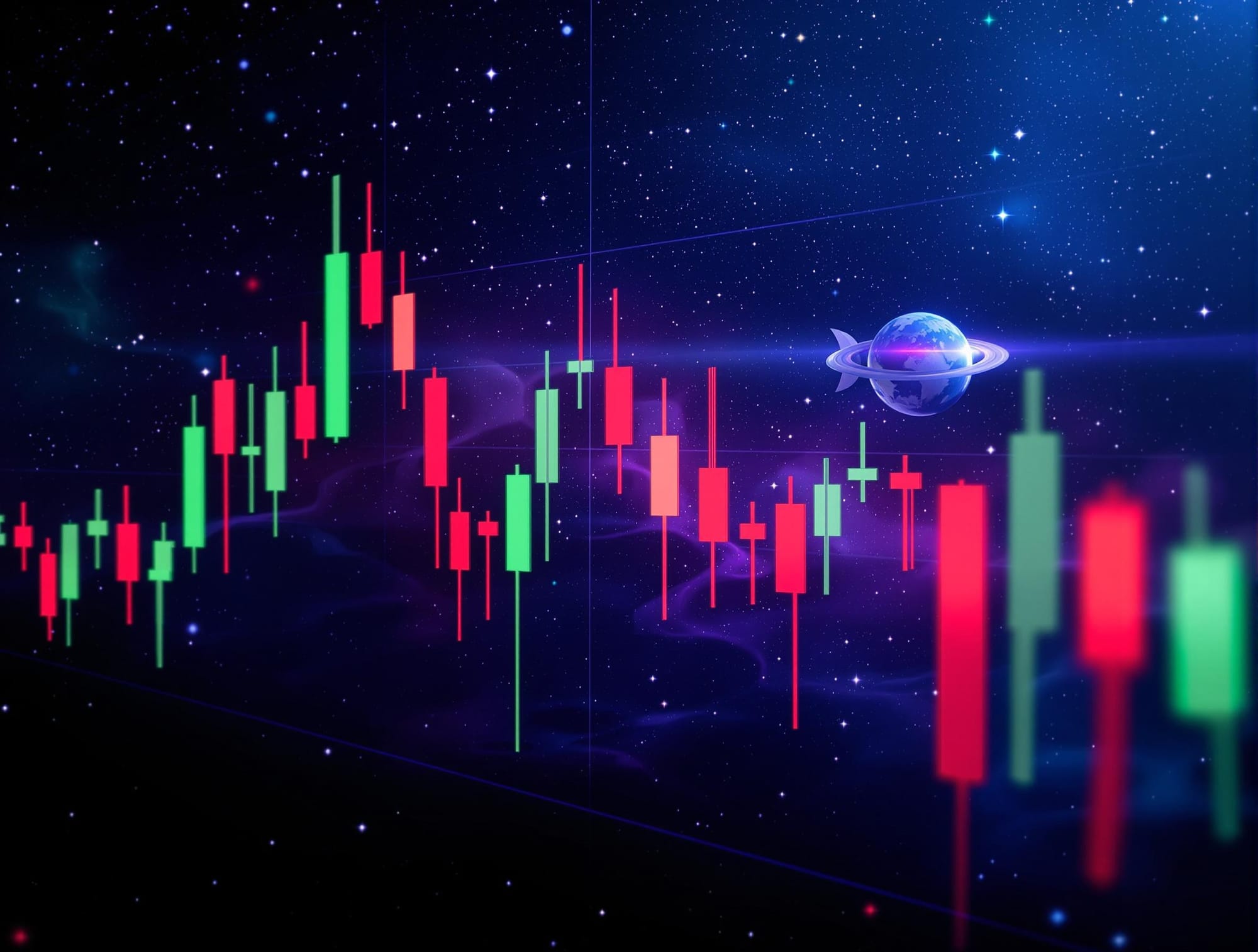
Best Futures Trading Platform for Beginners
What to Look for in a Trading Platform
The best futures trading platforms for beginners are easy to navigate, offer strong customer support, and provide educational resources. Look for platforms with low commissions, reliable execution, charting tools for futures market analysis, and a robust demo account. Mobile compatibility is key if you plan to trade on the go, so consider brokers that offer the best mobile app for trading futures. Does your chosen platform help you learn, practice, and grow as a trader?
Our Picks for Best Mobile App for Trading Futures
When it comes to the best mobile app for trading futures, options like Motivewave Mobile, Rithmic Mobile, Thinkorswim Mobile stand out for their user-friendly interfaces and real-time data. These apps provide advanced charting, live quote streaming, and order management designed specifically for trading micro futures and standard contracts alike. Most also support paper trade futures, so you can learn on the go without risk. Could having a powerful app on your phone make trading more accessible and less stressful for you?
Best Time to Trade Futures
Understanding Futures Market Hours
Futures markets operate nearly 24 hours a day during the trading week, offering flexibility for traders across different time zones. Most futures contracts have specific opening and closing times based on their underlying exchanges. Being aware of these hours helps you plan trades and avoid periods of low liquidity or high volatility. For example, E-mini S&P 500 futures trade almost around the clock from Sunday evening to Friday evening. Is your schedule best suited for morning, afternoon, or evening trading sessions?
Best Times of Day for Volatility and Volume
The best time to trade futures for most beginners is often during market open and the first two hours of trading, when volatility and volume peak. For U.S. indices, this typically means 9:30–11:30 a.m. Eastern Time. Foreign exchange and commodity futures may see more action during overlapping global markets. Trading during these periods can lead to tighter spreads and more predictable futures market analysis, increasing your odds of successful trades. Are you taking advantage of high-volume times for better opportunities?
Futures Market Analysis: Reading the Market Like a Trader
How to Do Basic Futures Market Analysis
A good futures trader uses both technical and fundamental analysis to anticipate price movements. Technical analysis involves studying price charts, trends, and indicators like moving averages and RSI. Fundamental analysis focuses on big-picture news or events—like crop reports for agricultural futures or inventory data for oil futures. Combining the two helps you make more informed decisions, and steady futures market analysis is at the heart of lasting trading success. Which analysis method feels more natural for you to use?
Tools That Make Futures Analysis Easier
Modern trading platforms offer a range of tools for futures market analysis, including economic calendars, charting packages, news feeds, and automated alerts. Software like TradingView, NinjaTrader, and MetaTrader provide visualization and backtesting features to help refine futures trading strategies. Mobile apps now deliver real-time data so you can stay updated wherever you are. Would using the right tools make you more confident in your trades?
Trading Micro Futures: The Smart Way to Start Small
What Are Micro Futures?
Micro futures are scaled-down versions of standard futures contracts, usually at a fraction of the size—often one-tenth. These smaller contracts offer the same underlying assets, such as equity indices, commodities, or currencies, but require significantly less margin to trade. The introduction of micro futures has made it possible for beginners and traders with smaller accounts to access popular futures markets, including the S&P 500 (Micro E-mini S&P 500), NASDAQ, and gold. With more manageable risk and commitment, micro futures are an excellent starting point for learning the ropes of day trading futures for beginners. What would you do if you could trade your favorite markets with less money on the line?
Advantages of Trading Micro Futures for Beginners
Is your portfolio ready to take advantage of learning with minimal downside? Trading micro futures provides beginners with several important benefits, including lower financial risk, flexible position sizing, and the ability to test futures trading strategies in real market conditions. The reduced contract size means less money is required in your trading account, allowing you to stick to proper risk management and still get real-world experience. For those starting with the smallest account size to trade futures, micro contracts are often the best futures to trade for beginners, since they limit potential losses.
Trading Futures vs Stocks: What You Should Know
Key Differences Between Trading Futures and Stocks
One major difference between trading futures vs stocks is that futures are leveraged contracts with expiration dates, while stocks represent company ownership and can be held indefinitely. Futures contracts often require a smaller upfront margin compared to the full purchase price of stocks, making them attractive for those seeking flexibility and leverage. Additionally, day trading futures allows for easier short selling (betting on price declines), whereas shorting stocks often comes with more restrictions. Would you prefer trading an asset with set rules and leverage, or owning shares of a company outright?
Why Many Traders Prefer Futures
Many traders are drawn to futures for their high liquidity, nearly 24-hour market access, and standardized contract structures. The advantages of day trading futures include the ability to profit from both rising and falling markets, sometimes with as little as a few hundred dollars in starting capital. Unlike stocks, futures traders can quickly adapt their exposure and strategies across different markets like commodities and indices. With so much flexibility and potential, it’s no surprise that seasoned pros and new traders alike often favor the futures market. Have you considered why futures might fit your trading goals better than stocks?
Advantages of Day Trading Futures
Why Day Traders Love the Futures Market
Could the flexibility and pace of day trading futures fit your lifestyle better than traditional investing? Day traders love the futures market because it offers ample trading opportunities, tight spreads, and straightforward access to the world’s most active markets. The ability to trade at almost any hour—thanks to global market hours—means they can choose when and how often to trade based on their personal schedule. The standardized nature of futures contracts also makes it easier to develop, test, and refine futures day trading strategies.
How Futures Give You More Flexibility and Leverage
Why settle for limited opportunities when futures let you respond to any market condition? Futures let traders control a large contract value with a small amount of money up front, thanks to leverage. This leverage amplifies both gains and losses, so risk management becomes crucial, especially when starting with the smallest account size to trade futures. Futures also allow for easy short selling (going short futures contract), which means you can profit just as easily when prices go down as when they go up.
Best Books on Futures Trading to Read Right Now
"Trading Commodities and Financial Futures" by George Kleinman
Have you thought about how reading expert advice could shorten your learning curve? This book is a favorite among traders interested in day trading futures for beginners. Kleinman covers the fundamentals, including contract specifications, order types, and practical tips for handling the psychological side of day trading. With clear explanations of both beginner and advanced futures trading strategies, this is an excellent guide if you want to build a strong foundation.
"A Complete Guide to the Futures Market" by Jack D. Schwager
Could mastering these insights help you become a more consistent trader? Jack D. Schwager’s book is considered a classic, offering an in-depth exploration of technical analysis, trading systems, and market psychology. It features practical futures day trading strategies and detailed examples, making it ideal for those ready to move beyond the basics. This book can help you develop a deeper understanding of futures market analysis and risk management.
"The New Trading for a Living" by Dr. Alexander Elder
Are you prepared to build solid trading habits from day one? Dr. Alexander Elder’s updated guide covers essential topics for beginners, including trading psychology, risk management, and discipline. It also explores the differences between trading futures vs stocks, helping you decide which path is right for you. Elder’s simple explanations and actionable advice make this one of the best books on futures trading for those just starting out.
"Technical Analysis of the Futures Markets" by John J. Murphy
Want to unlock the secrets hidden in price charts like professional traders do? This classic by John J. Murphy is the go-to resource for understanding technical analysis in futures trading. From chart patterns to indicators and oscillators, Murphy explains complex topics in an accessible way that’s perfect for beginners. Building proficiency in technical analysis is a must for reliable futures market analysis and improving your trading outcomes.
Final Words on Day Trading Futures
Day trading futures for beginners is a rewarding journey when you approach it with preparation, a willingness to learn, and a focus on risk management. Start by exploring micro futures, practicing on a demo account, and reading reputable books to build your knowledge base. Take the time to develop your own trading style and choose the best futures trading platform for beginners that matches your needs. Futures trading isn’t a get-rich-quick scheme, but with discipline and the right tools, you can steadily improve and gain more confidence in your trades. Are you ready to jumpstart your trading future today?
FAQs About Day Trading Futures
What is the best futures market for beginners?
The best futures to trade for beginners are often highly liquid and have lower margin requirements, such as the Micro E-mini S&P 500, Micro E-mini NASDAQ, or crude oil contracts. These markets are popular, have abundant educational resources, and allow new traders to learn with smaller risks. Trading micro futures is a great way for beginners to get comfortable in live market conditions.
How much money do you need to start day trading futures?
The smallest account size to trade futures depends on the broker and the type of contracts you plan to trade. With micro futures, you can start with as little as $400–$1,000, but having more capital is safer for managing losing trades and avoiding margin calls. Always consider having a buffer above the minimum to allow for flexibility and learning.
Is it better to trade micro futures as a beginner?
Yes, for most beginners, trading micro futures is the smartest way to get started. Micro contracts let you practice futures day trading strategies in real markets while limiting financial risk. With smaller position sizes and lower margin requirements, you can focus on learning and improving without the pressure of large losses.
How risky is day trading futures?
Day trading futures can be risky due to leverage, volatility, and the speed at which markets move. Losses can exceed your initial deposit if you’re not careful, so practicing with a paper trade futures account first is essential. Always use stop-loss orders and only trade with money you can afford to lose.
How can I practice futures trading without losing money?
You can practice by opening a demo or simulated account with a reputable futures broker. Many of the best futures trading platforms for beginners offer paper trade futures functionality, letting you use real-time data and try out different futures trading strategies with zero risk. This step is crucial in building skills and confidence before you start trading live.
This guide has equipped you with everything you need to start day trading futures for beginners, from strategies to tools and best practices. Take your next step with confidence and remember—practice, learning, and discipline are your keys to success!
